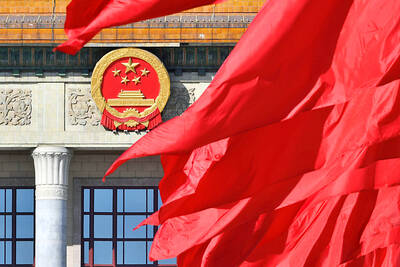The US Treasury Department aims to hold off on selling its 34 percent stake in Citigroup Inc until the bank and regulators agree on a broader plan to repay all obligations remaining from last year’s US$45 billion government bailout, a source close to the department said.
Treasury officials are concerned that a sale now of its 7.7 billion shares in the New York-based bank may weaken investor demand should Citigroup subsequently be required to raise capital as a condition of exiting the bailout program, said the source, who declined to be identified because the government has not discussed the plan publicly.
Citigroup executives have pressed Treasury for at least three months to sell the stake as a first step toward leave the bailout program, according to people familiar with the matter. They want to escape government-imposed pay limits that may make the company vulnerable to employee-poaching by unfettered rivals. Bank of America Corp, the only other large US bank under pay limits, last week announced a plan to exit the program.
“This should be well thought-out for the benefit of all constituencies and in this case that includes shareholders, the government and the taxpayers,” said Dennis Santiago, chief executive officer of analysis firm Institutional Risk Analytics in Torrance, California.
“Just because Bank of America goes doesn’t mean you have to rush Citigroup,” he said.
The government is trying to wind down bailout programs extended as financial markets convulsed late last year. US Treasury Secretary Timothy Geithner said in an interview on Friday that most taxpayer money injected into banks through the Troubled Asset Relief Program (TARP) would eventually be recovered.
While holding off on a sale of its Citigroup stake, the Treasury has pushed regulators behind the scenes to accelerate discussions with all large banks about their plans to exit TARP, the person close to the department said.
Last month, the Federal Reserve asked nine of the biggest US banks to submit plans to repay the government’s capital injections. In testimony last week before the Senate Banking Committee in Washington, Federal Reserve Chairman Ben Bernanke said Bank of America received approval to exit TARP only after regulators “felt it was safe and reasonable and appropriate.”
Charlotte, North Carolina-based Bank of America, the biggest US lender, agreed to raise at least US$18.8 billion of capital, a press release said on Wednesday. It said later that it had raised US$19.3 billion.
JPMorgan Chase & Co, Goldman Sachs Group Inc and Morgan Stanley, all based in New York, repaid their bailout funds in June. San Francisco-based Wells Fargo & Co, which still has US$25 billion of TARP money, isn’t subject to pay limits because it never needed a second helping of bailout funds, as Citigroup and Bank of America did.
In October, Citigroup CEO Vikram Pandit, 52, said he was “focused on repaying TARP as soon as possible.”

US PUBLICATION: The results indicated a change in attitude after a 2023 survey showed 55 percent supported full-scale war to achieve unification, the report said More than half of Chinese were against the use of force to unify with Taiwan under any circumstances, a survey conducted by the Atlanta, Georgia-based Carter Center and Emory University found. The survey results, which were released on Wednesday in a report titled “Sovereignty, Security, & US-China Relations: Chinese Public Opinion,” showed that 55.1 percent of respondents agreed or somewhat agreed that “the Taiwan problem should not be resolved using force under any circumstances,” while 24.5 percent “strongly” or “somewhat” disagreed with the statement. The results indicated a change in attitude after a survey published in “Assessing Public Support for (Non)Peaceful Unification

The CIA has a message for Chinese government officials worried about their place in Chinese President Xi Jinping’s (習近平) government: Come work with us. The agency released two Mandarin-language videos on social media on Thursday inviting disgruntled officials to contact the CIA. The recruitment videos posted on YouTube and X racked up more than 5 million views combined in their first day. The outreach comes as CIA Director John Ratcliffe has vowed to boost the agency’s use of intelligence from human sources and its focus on China, which has recently targeted US officials with its own espionage operations. The videos are “aimed at

‘MISGUIDED EDICT’: Two US representatives warned that Somalia’s passport move could result in severe retaliatory consequences and urged it to reverse its decision Minister of Foreign Affairs Lin Chia-lung (林佳龍) has ordered that a special project be launched to counter China’s “legal warfare” distorting UN Resolution 2758, a foreign affairs official said yesterday. Somalia’s Civil Aviation Authority on Wednesday cited UN Resolution 2758 and Mogadishu’s compliance with the “one China” principle as it banned people from entering or transiting in the African nation using Taiwanese passports or other Taiwanese travel documents. The International Air Transport Association’s system shows that Taiwanese passport holders cannot enter Somalia or transit there. The Ministry of Foreign Affairs (MOFA) protested the move and warned Taiwanese against traveling to Somalia or Somaliland

SECURITY: Grassroots civil servants would only need to disclose their travel, while those who have access to classified information would be subject to stricter regulations The government is considering requiring legislators and elected officials to obtain prior approval before traveling to China to prevent Chinese infiltration, an official familiar with national security said yesterday. President William Lai (賴清德) in March announced 17 measures to counter China’s growing infiltration efforts, including requiring all civil servants to make trips to China more transparent so they can be held publicly accountable. The official said that the government is considering amending the Act Governing Relations Between the People of the Taiwan Area and Mainland Area (臺灣地區與大陸地區人民關係條例) to require all civil servants to follow strict regulations before traveling to China.